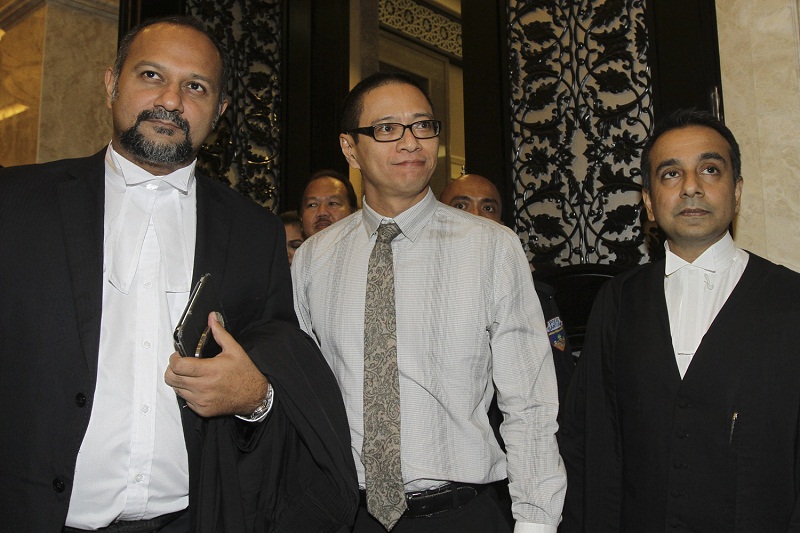KUALA LUMPUR, Jan 14 — Universiti Malaya (UM) professor Azmi Sharom’s remarks on the Perak mentri besar crisis would not be problematic if these were conveyed to the courts rather than the media, a police investigator told the Kuala Lumpur Sessions Court today.
Inspector Mohd Izwan Paijan, 34, said Azmi as a senior law lecturer should have aired his dissatisfaction with court rulings related to the topic directly with the judiciary or law enforcement authorities.
“Because as a law lecturer, he should complain about this matter to the responsible parties. If not satisfied with the court’s decision, have to complain to the higher courts,” the investigating officer of Azmi’s case said in reply to Azmi’s lawyer Gobind Singh Deo.
When asked if this meant no one is allowed to publicly question court judgments, Mohd Izwan said that it “depends on the individual’s position”.
Mohd Izwan further gave the example of how an individual should not use email or Facebook to express their dissatisfaction, but should go to the police or courts to do so.
He said there is “no problem” for the lecturer to have different opinions or disagree with court rulings, but reiterated that the latter should have brought this to the attention of the judiciary.
Mohd Izwan, who had conducted an investigation in August 2014 on a police report regarding Azmi’s remarks, disagreed that there was no seditious tendencies in the latter’s reported statement in relation to the appointments of the MBs in Selangor and Perak.
During cross-examination, Mohd Izwan admitted that he had not read the 1966 judgment of a Sarawak case — Stephen Kalong Ningkan v Tun Abang Haji Openg and Tawi Sli — which Azmi had cited in defence during questioning.
Among other things, Gobind highlighted an excerpt from the judgment that said a lack of confidence against a leader should be decided by a vote in the state council.
Mohd Izwan agreed that he has the responsibility to probe the defences of an accused, prompting Gobind to hone in on the police officer’s uncertainty over the statutory defences available under Section 3(2) of the Sedition Act.
Later when re-examined by prosecutor Suhaimi Ibrahim, Mohd Izwan said that it is for the accused to prove his defence, adding that courts would decide if an accused’s words fall under Section 3(2) of the Sedition Act.
Mohd Izwan is the fourth and final witness called in by the prosecution to testify today.
Sessions Court judge Amernudin Ahmad will hear submissions from both sides on February 19.
Azmi was charged on September 2, 2014, under Section 4(1)(b) and alternatively under Section 4(1)(c) of the Sedition Act for remarks made in an August 14 news report titled “Take Perak crisis route for speedy end to Selangor impasse, Pakatan told”.
A conviction under either charge is punishable by a maximum RM5,000 fine, a maximum three-year jail term or both.
Lawyers Rajsurian Pillai and Cyrus Tiu Foo Woei held a watching brief for the Bar Council during the hearing this afternoon, while lawyer Roger Chan played a similar role this morning.



















